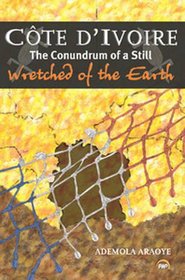Search -
Cote D'Ivoire: The Conundrum of A Still Wretched of the Earth
Cote D'Ivoire The Conundrum of A Still Wretched of the Earth
Author:
Côte d Ivoire The Conundrum of a Still Wretched of the Earth explores the internal complexities and the context of the controversial international engagement in the Ivorian crisis. Bold formulations emerge on the structure of the post-colonial state and its immediate external environment. The environment is populated by unlike units: formal sta... more »
Author:
Côte d Ivoire The Conundrum of a Still Wretched of the Earth explores the internal complexities and the context of the controversial international engagement in the Ivorian crisis. Bold formulations emerge on the structure of the post-colonial state and its immediate external environment. The environment is populated by unlike units: formal sta... more »
ISBN-13: 9781592218646
ISBN-10: 1592218644
Publication Date: 2/16/2012
Pages: 526
Edition: First edition
Rating: ?
ISBN-10: 1592218644
Publication Date: 2/16/2012
Pages: 526
Edition: First edition
Rating: ?
0 stars, based on 0 rating
Publisher: Africa World Press, Inc.
Book Type: Paperback
Members Wishing: 0
Reviews: Amazon | Write a Review
Book Type: Paperback
Members Wishing: 0
Reviews: Amazon | Write a Review
Genres:
- History >> Africa >> C?te d'Ivoire




